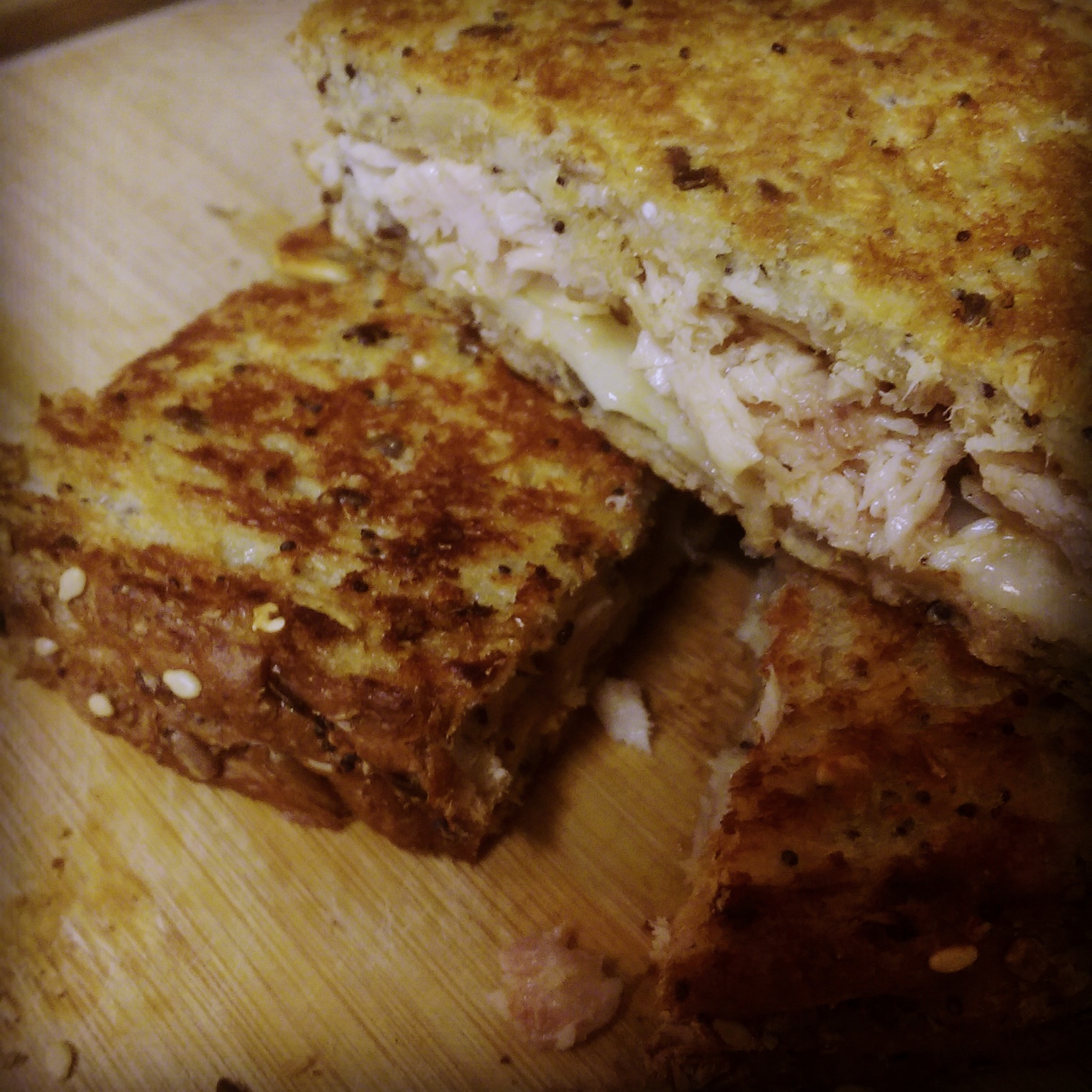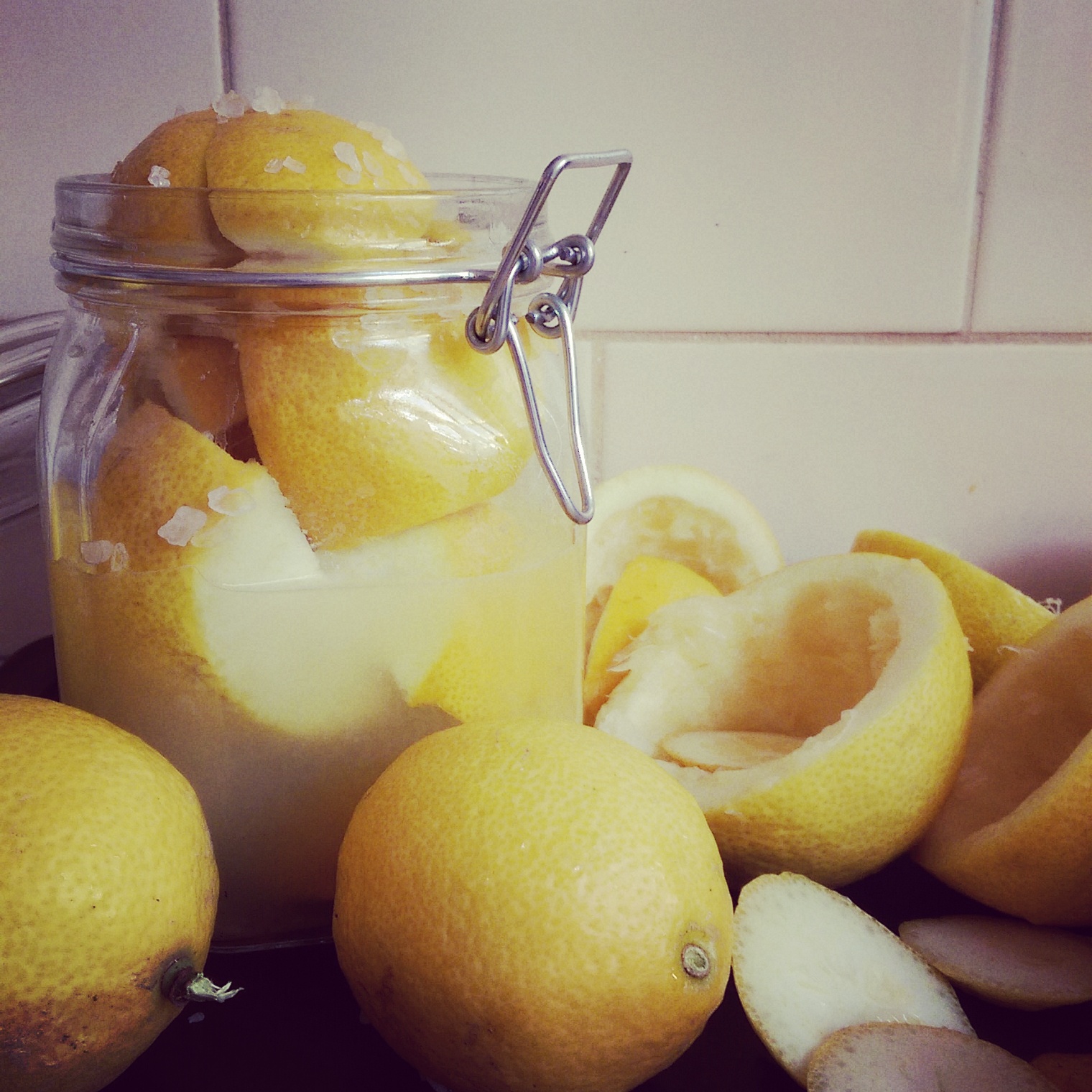Have you ever eaten a dish and felt conflicted on whether to slow down and savour the experience or, to give into your cravings, your addiction, and consume the meal in a blitz of such ferocious violence that it could be called a crime against humanity.
I have.
It was last night and it was a toasted tuna sandwich. I did not see that coming. I resist in calling it the 'perfect toasted tuna sandwich'. Such sentiments about achieving perfection never consider that the toasted tuna sandwich is multi-dimensional and that to move along one of these dimensions towards perfection is to shift another away. One can achieve perfection in a dimension but not in all dimensions.
I can list the ways in which this sandwich could strive for perfection: taste, crunchiness, the amalgam of flavours, consistency, mouthfeel, sustainability and simplicity.
I can list the ways in which it can not: the quality of the individual ingredients, photography, ethics.
Yes.
My sustainable sandwich with the vociferous crunch is unethical. The gruyère, that was sliced thin and toasted until its precious heart melted and stretched languidly over the tuna, is unethical. You see, it contains an animal-based rennet and itself is a by-product of an animal. In my worldview, I rationalise the ethics of eating animals with the caveat that the animal must be cared for and treated with respect. It should have a good life before it gives up its life, for your steak sandwich. I have no idea of the treatment of the animal that supplied the rennet nor the cow that supplied the milk. Sourcing ethical gruyère is a non-trivial in Melbourne.
The bread that I used was neither artisanal or bespoke. It came from a supermarket. The butter was really a butter-margarine blend and not the stick of organic French butter that is in the fridge. The French butter that I did not use because I could not be bothered softening it. It is far too easy for firm butter to dent and tear the bread. Bread integrity is crucial to a good toasted sandwich.
And the tuna? Well, what can I say other than: it came from a can. Rare is it that decisions made by a tuna packing company on how many grammes to cram into single-serve tins, decisions that were made for logistical, financial and perceived market appetite have resulted in the 'perfect' amount of tuna for my sandwich. The tuna is sourced using the pole and line method and is one of the most ethical and sustainable canned tuna available in Australia.
I unceremoniously scooped the tuna out of the tin and huddled it into the centre of the bread. The bread had been slowly toasting in the sandwich press while I peeled and drained and prepared. Upon the even bed of tuna I dusted Murray River pink salt flakes, cracked some fresh black peppercorns and sprinkled a light coating of ground chilli sourced from South-Eastern Turkey. The flavour is more sweet than spice. Next comes a single layer of gruyère that when melted yields enough moisture to change the composition of each bite without overwhelming the ensemble. Finally, the last piece of bread crowns the sandwich and it's pressed.
It's important to focus on language. Pressed is the verb while crushed, mangled and flattened do not appear in the sentence. One needs the sandwich to coalesce but integration cannot be forced. It will happen with time and with faith.
The press needs to go on long enough for the tuna to be warm, the gruyère to be melted, the bread to be toasted and golden. When ready slide it out and onto a breadboard where, with a glorious crunch, we slice the sandwich into two using a large, sharp blade. The blade needs to be big enough to cut in one motion. No sawing motion. A single cut all the way through.
You'll know you've got it right when that crunch, a crisp, clean sound, triggers salivation and the want of a first bite. With that bite comes the burgeoning realisation of a wild fantasy finally coming true. A dream of a future where every toasted tuna sandwich is this good.
If you believe that dreams can come true, be prepared for the occasional nightmare too – French Proverb.
After last night's success, what did I have for lunch today?
A disappointing masquerade that left me wanting.
As is every toasted tuna sandwich since then. Is it better to strive for a goal and never reach it or, to reach it and forever be overshadowed by the knowledge that you'll never reach it again? There are people who say that the journey is the destination. Those people are the kind of people who have never made it.







